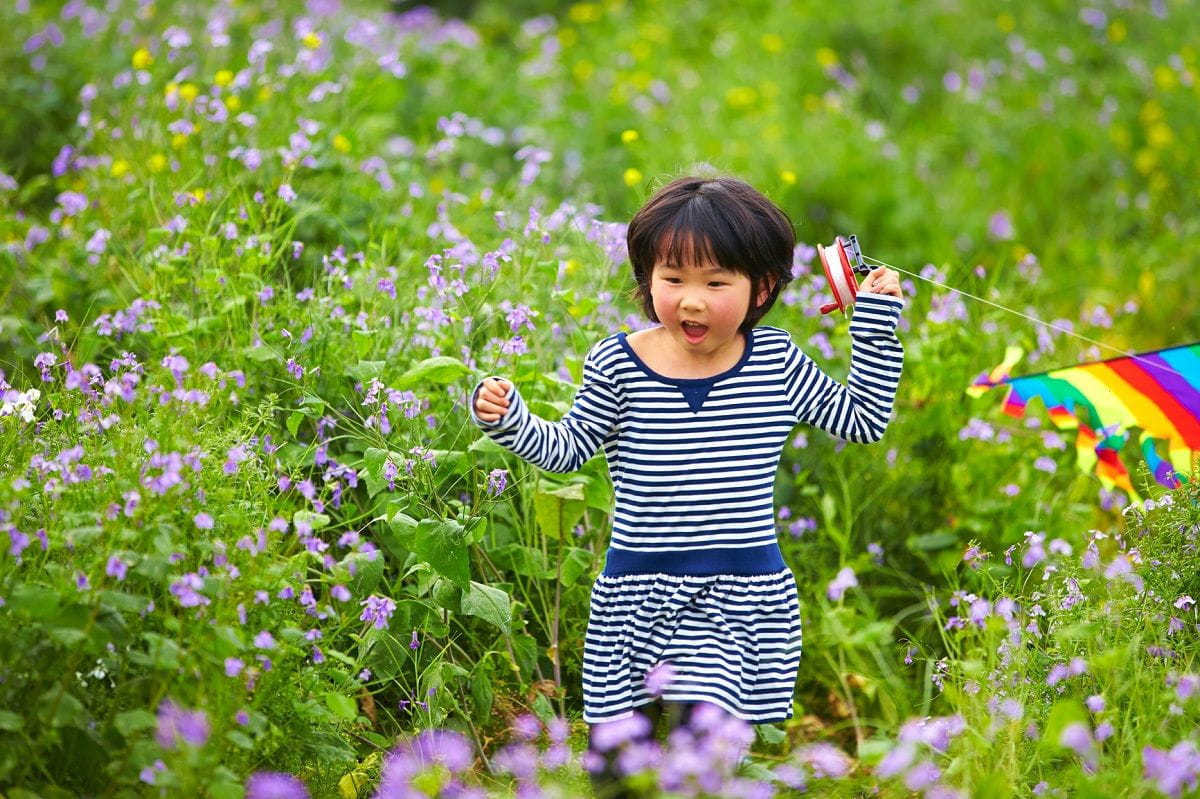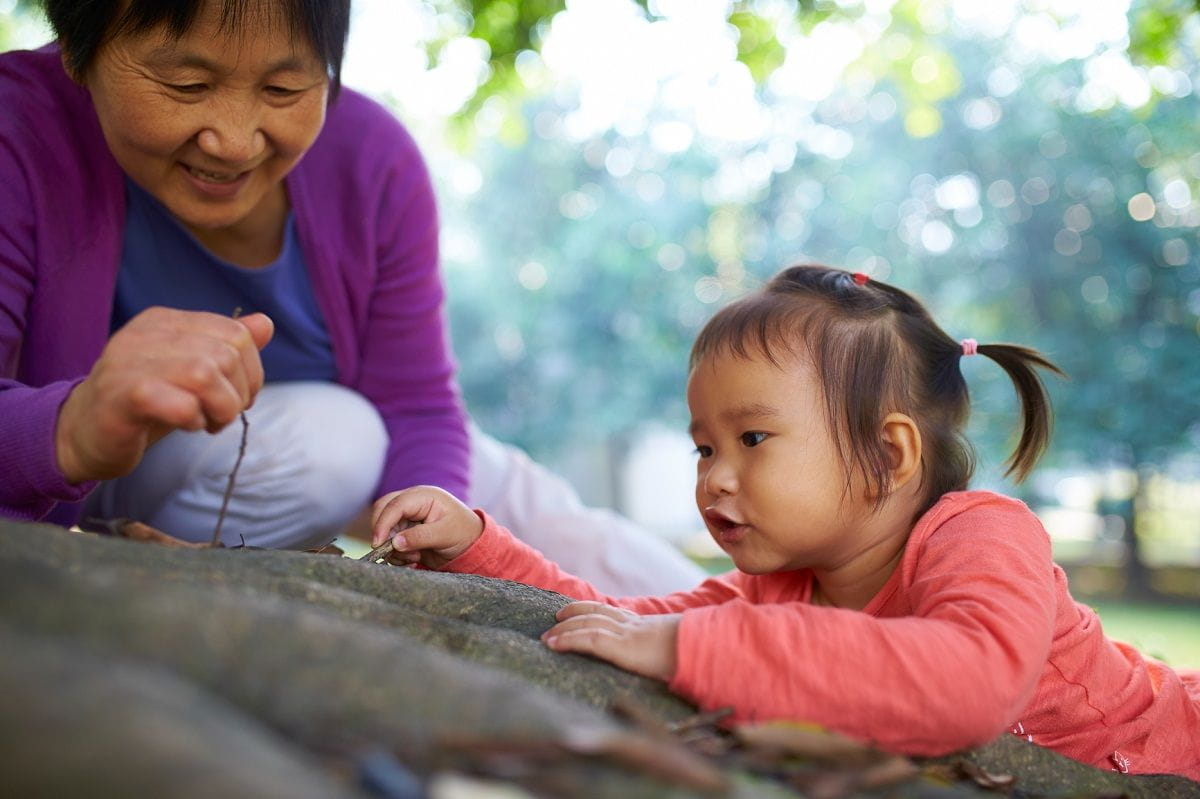Paper-Bag Kites Build STEM Skills and Teach Cause and Effect

By Rachel Ward
Remember how kites were things of wonder when you were young? The bright colors, streamers, and shapes were fascinating—but the moment the kite actually lifted into the air…well, that was downright magical, right?
There’s a reason why young children find kites so mesmerizing. “Preschoolers are all about discovering how things work—how a kite flies, how water freezes, how blue mixed with yellow makes green and on and on,” says Meg Davis from KinderCare's Education team. Children are born scientists in other words, and that’s why at KinderCare, we introduce STEM learning and science concepts early—and often.
KinderCare preschoolers make their own kites from paper bags. (Okay, it’s true that most paper-bag kites don’t “fly” in the traditional sense, but with kids’ imaginations soaring at this age, the effect is still wide-eyed and wondrous.) Best of all, the project teaches kids a few science basics, all couched in fun.
In Our Preschool Classrooms, Science Learning Flies to New Heights
So what are kids actually learning from trying to fly a paper bag? “One of the biggest things children are experimenting with when they fly kites is cause and effect,” says Davis. Does the kite fly better with a small breeze or a big wind? How does the shape of the kite affect how the kite flies?
Cause and effect is a crucial early science concept that lays the foundation for learning more advanced science information later on. Plus, when preschoolers start figuring out cause and effect, they’re also learning that their actions lead to results—and that can be empowering!
“This activity inspires curiosity and teaches children to embrace challenges—it shows them that they can learn from their mistakes and that it’s all good stuff!” Davis says. (After all, making a kite isn’t exactly easy, and flight isn’t guaranteed.) When kids know that it’s okay to try, try again, they’re also building confidence—something that will serve them well in school and beyond.
We’ve got STEM learning covered while you’re away at work, but there’s no reason to limit the science fun to our centers! Check out these ideas for growing your preschooler’s science skills at home.
3 Ways to Build Science Skills (and Confidence to Boot)
1. Ask Them to Make a Prediction
Science Skill They’re Learning: Cause and Effect
Encourage your budding scientist to really think about cause and effect by asking them to predict what will happen—to anything! What do you think happens to a plant when it doesn’t get enough water? Will the ice-cube tray still be filled with liquid when you take it out of the freezer in an hour? Better yet…if your child eats their veggies, will they get dessert?

2. Take Time to Notice the World
Science Skill They’re Learning: Observation
Feeling a fuzzy caterpillar or hearing a new bird song can be thrilling for kids. We know, life is hectic, and preschoolers can be easily distracted—but the next time she stops to examine the spots on a ladybug or check out a cool pile of rocks, take a few minutes to soak it in with her. And talk about it, too! When she looks at the smallest details, she’s building valuable observational skills.
3. Encourage Their Sense of Experimentation
Science Skill They’re Learning: Curiosity
Kids don’t yet have set ideas about how to make, do, or use things. And that’s a good thing! Experimentation is how they discover the world and find their way in it. Encourage this sense of possibility by giving your child freedom to play their own way. What happens when sand gets dunked in water? Can I paint with a tree branch instead of a paintbrush?
This freedom also teaches resilience: Let your child know that if they don’t succeed the first time, that’s okay—they can always try again! By giving kids free rein over their curiosity, you’re helping them build a sense of joy around learning and exploring, which is something that will hopefully make them excited about learning for life.




